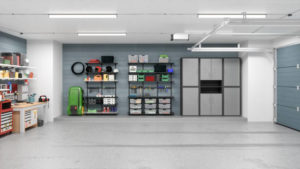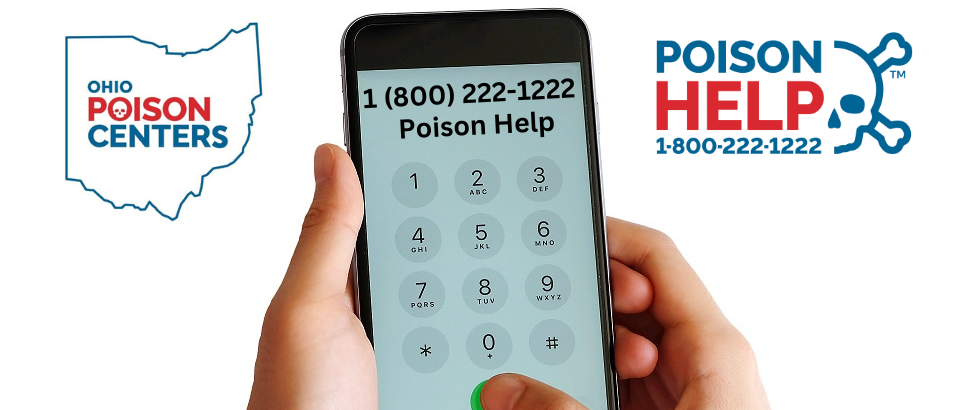Did you know that more than 90 percent of poisonings in the United States happen at home? Our families spend most of our time within our homes eating meals, sleeping or spending time together. That’s why we need to be sure that we safely store household chemicals, medications and other potentially poisonous substances. What types of poisons are in your home and how do you know if something is poisonous? Below we go room by room and discuss what potential poisons can be kept there and how to store those items safely.
Kitchen
The kitchen is often referred to at the heart of a home. Family meals are cooked there and many memories can be created. The kitchen can also store some hidden poisons. Remember, anything can be poisonous if it’s taken by the wrong person, with the wrong amount or by the wrong route (such as swallowing an eye medication). Here is a list of items that can poisonous in the kitchen:
- Alcohol
- undercooked meat, poultry, eggs
- improperly stored perishable food items
- cleaning products
- medications
Prevent poisonings with these items by safely storing them out sight and reach of children. Safe storage can be on a top shelf in a cabinet or in a medication lockbox. Some adults like to use removable cabinet locks in the kitchen to keep small children out of cleaning products and detergents. Sometimes children are naturally curious and may see this as a puzzle that needs to be solved. Locked cabinets that are up high and out of reach are the safest option for storing those poisonous products.
Food Safety in the Kitchen
When preparing meals with meat, poultry or eggs, make sure you know the minimum cooking temperatures of the meat you are cooking. Be sure to clean all surfaces that uncooked meat comes in contact with, including your hands, before, during and after handling. Perishable foods often have a BEST BEFORE or EXPIRATION date on the package so be sure to look for those dates before consuming. Remember that refrigerated foods need to remain refrigerated. If dairy products or uncooked meats are left out in warm temperatures (above 40 degrees F) too long then the items can spoil and be unsafe to eat. When cleaning fruits and vegetables, be sure to rinse them off with running water. Do not wash meat, poultry or eggs.
Bedroom/Living Room
Items that we use on a daily basis in our bedrooms can also be poisonous if used in the wrong way. Here are some products that may be kept in bedrooms or living areas that could be poisonous if used the wrong way.
- Colognes/perfumes
- Skin Care products
- Makeup
- Lotion/Medicated ointments
- Batteries (including button batteries)
- Cigarettes/smokeless tobacco products
- Marijuana Edibles
- Mothballs
- Medications/vitamins
- Alcoholic beverages
- Home fragrance oils
- Coins
One of the most important ways to prevent unintentional poisonings is to store poisons in a different area away from food and drinks. If you have small children in the home, be sure to store those poisonous items out of sight and reach. This also includes purses and handbags which could contain medications, coins, tobacco products or cosmetic products.
Bathroom/Washroom
The bathroom is a room that everyone is the home uses and has access to. It is also a room that can contain many poisons. Here are some common poisonous products that are often found in bathrooms.
- Cleaners/disinfectants
- Hair products
- Make-up
- Medications/Vitamins
- Toothpaste/Mouthwash
- Soap
- Nail polish/polish remover
- Shampoo/Conditioner/Bath gel
- Bath salts/bath bombs
- Lotion/body oils/creams
- Skin care products
- First Aid kits containing ointments/rubbing alcohol
- Shaving products
There are a lot of look-alike products that are stored in bathrooms. Items like antibiotic ointments/muscle pain relief cream/diaper rash cream and toothpaste containers look very similar. If these items are stored in the same place, one could mix them up very easily.
Store items in their original containers and clearly labelled will help prevent mixups. Medications and vitamins should be store up high in a cabinet out of reach of small children. If there are medications for more than one family member in the bathroom, be sure to store each person’s medication separately to prevent a medication mixup. Bathroom cleaners can be very toxic if ingested and should be stored safely away from children.

Laundry Room
Laundry detergents/pods/scent beads are typically stored near the washer and dryer. These products have a fragrant smell and eye catching colors which can attract young children. They can also be very toxic if swallowed. Be sure to store these products up high and out of reach of children. If you store these products out of the original containers, make sure they are clearly labeled.

Garage/Storage Areas/Sheds
The garage or sheds typically house items that we use to do yard work, home or car maintenance. These items can be very poisonous if used the wrong way. Here are some of the items you may find in these areas.
- Car maintenance products (antifreeze, oil, windshield washer fluid, car wash products and aerosols)
- Gasoline/kerosene
- Lighter fluid/torch fluid
- Paint
- Pool maintenance supplies
- Polyurethane/Paint thinner/Paint remover
- Pesticides
- Lawn maintenance chemicals (fertilizer/weed killer)
- Adhesives
These products are very strong chemicals and the warning labels should always be read before using. Often these chemicals can also have a reaction when used together so proper protective equipment should be worn when using. Be sure to store the chemicals in the original containers and are clearly labelled.
Even if you have safely stored poisonous products in your home, sometimes poisonings can happen. Your poison center is there to help. Be prepared by posting our POISON HELP magnet or sticker in a visible location and save our helpline number in your cell phone: 1-800-222-1222. We are available to take your call 24 hours a day/7 days a week/365 days a year. Our calls are answered by specially trained nurses and pharmacists that are experts in poison information.




